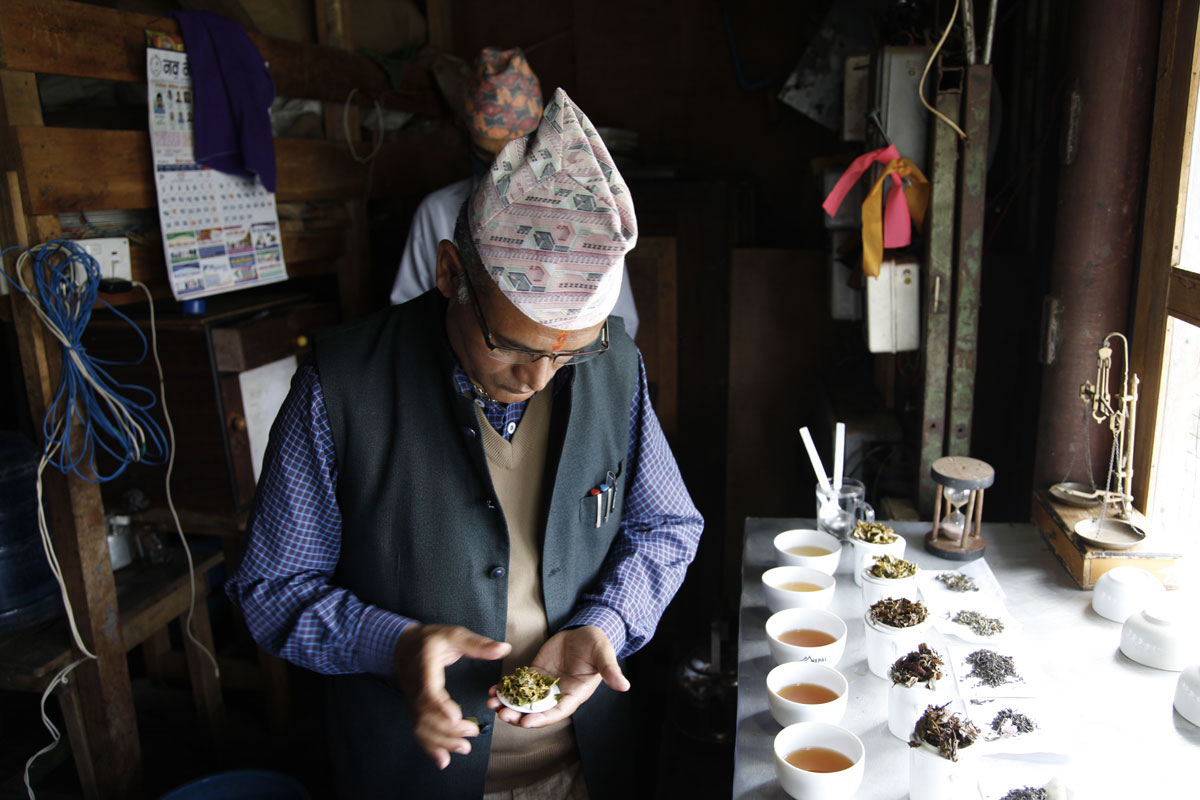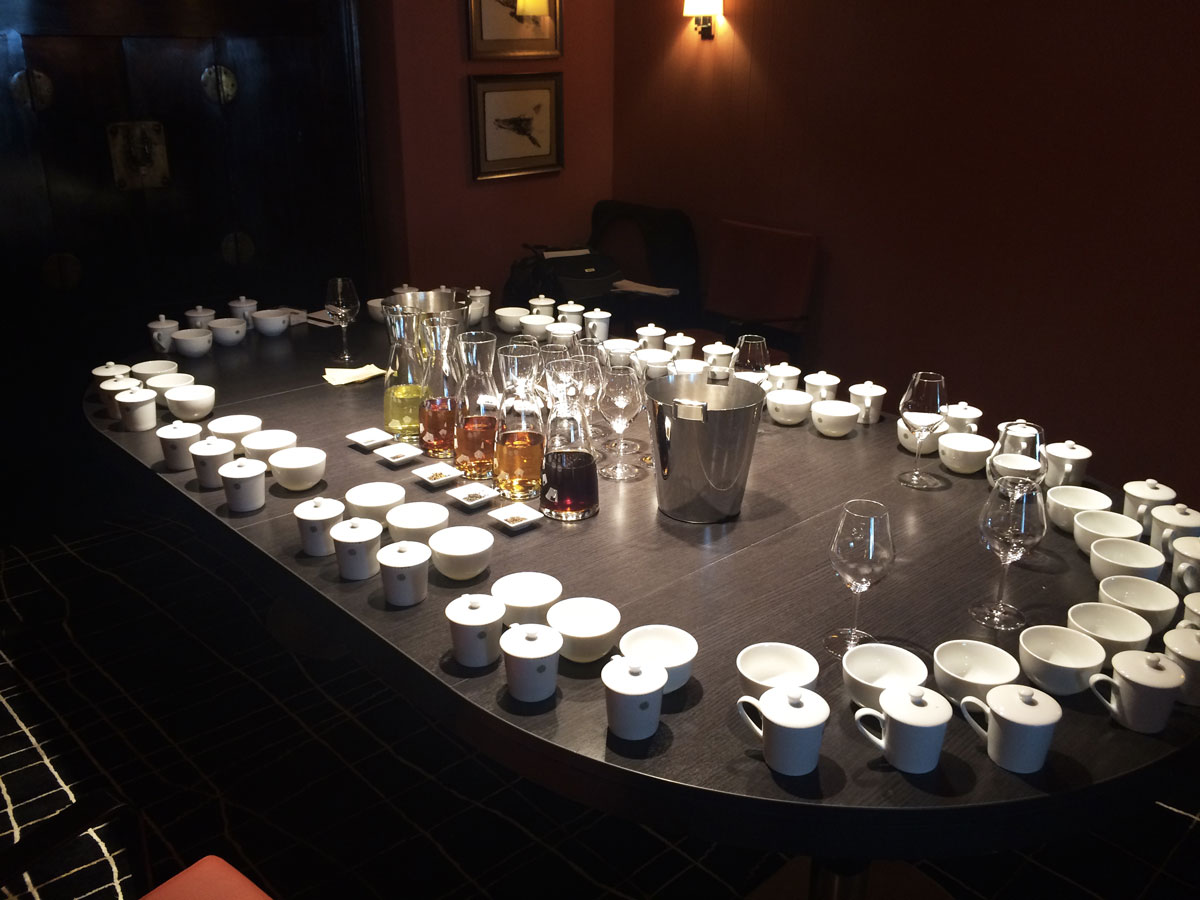When we taste tea, we pay attention to the leaves at every stage. Of course we are interested in the liquor, which we drink, and we also examine the dried leaves: are they whole or broken? Do they contain buds? What colour are the leaves? Are they all similar? Lastly, the infused leaves can tell us a great deal. We smell them, and press them, as Nirananda Acharya is doing here. Often, the smell of the wet leaves can tell us as much about the tea as drinking the liquor itself. The wet leaves inform us about every stage of the processing. We can pick up on the slightest defect, or on the contrary, we can revel in the wonderful bouquet.
ARCHIVE FOR July 2017
Your teapot needs to air too
For those who are getting ready for their holiday, here is some essential advice on your teapot. If you don’t use it for several days, rinse it out with clean water. Never use detergent, of course. Then place it either way up, it doesn’t matter, but without its lid. The air needs to circulate inside it while you’re away. The teapot needs to dry properly, and not remain damp inside. So just place the lid alongside the teapot, or on the top, but the wrong way around. This means you will find your teapot in excellent condition when you return, ready to brew teas at their best!
Preparing for a successful tasting
The Tea School provides training for Palais des Thés employees to ensure their knowledge and expertise is as good as possible. The school also offers courses for members of the public who want to learn about tea and the best way to drink it, and lastly, it trains food professionals. Recently, these have included teams from the Ritz and Bristol hotels in Paris. In this way, maîtres d’hôtel and sommeliers learn about tea, and many are passionate about the subject. Some have built up their knowledge over a long period, while others are thirsty to learn. This is how we prepare the tasting session – this one took place at the Institut Paul Bocuse a few days ago. There are three tasting sets per participant, to taste three premium teas (Jade Oolong by Mrs Ming, Dong Ding Antique, Pu Erh Menghai XO Milésime 1999). In addition, five teas were infused in cold water and served in stemmed glasses: Ryogôchi Saemidori Shicnha Ichibancha 2017, Kagoshima Benifuki by Mr Kumada, Népal Kanchenjunga Gold Récolte Tardive, Satemwa Dark and Enjin Jukro from Korea. The leaves are examined in little dishes. However, we do not label the teas – I like people to taste them blind and if possible I hide the tea colour, without saying what type of tea it is, so that students can keep their minds clear and not form preconceptions. This is a refined approach to tea. It is about awakening the senses, describing a texture and a flavour, and recognising aromas. My dream is to initiate new people into this vocation so that one day they can become a tea sommelier!
Tension in Darjeeling
For the past three weeks, tensions have been running high in Darjeeling. Businesses, roads and plantations have shut down, tourists have been asked to leave. The reason for the general strike is that the people of Nepali origin, who make up the majority of the population, are being forced to learn Bengali at school – a language from a region they hate. Darjeeling is part of West Bengal, which is resented by the independence movement, who want to create a new state within the Indian Union: Gorkhaland. This issue has been boiling over for the past 30 years, and demonstrations are frequent. With a three-week strike taking place during the summer harvest season, the plantations will struggle to cope this year. This is on top of the 30% decline in volumes harvested due to the dry spring this year.




